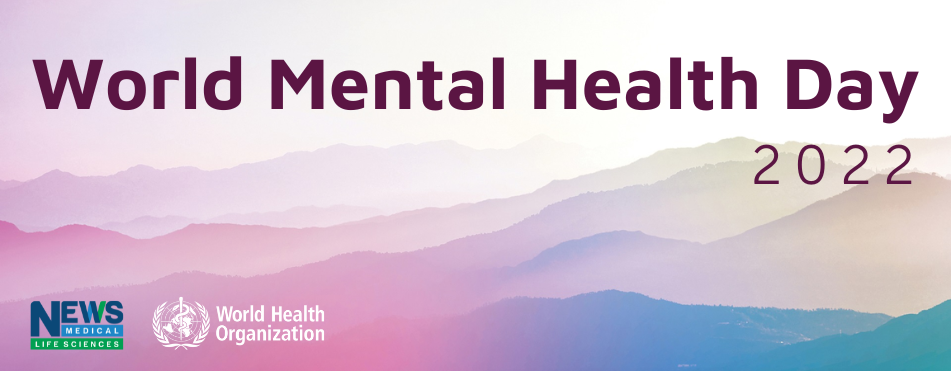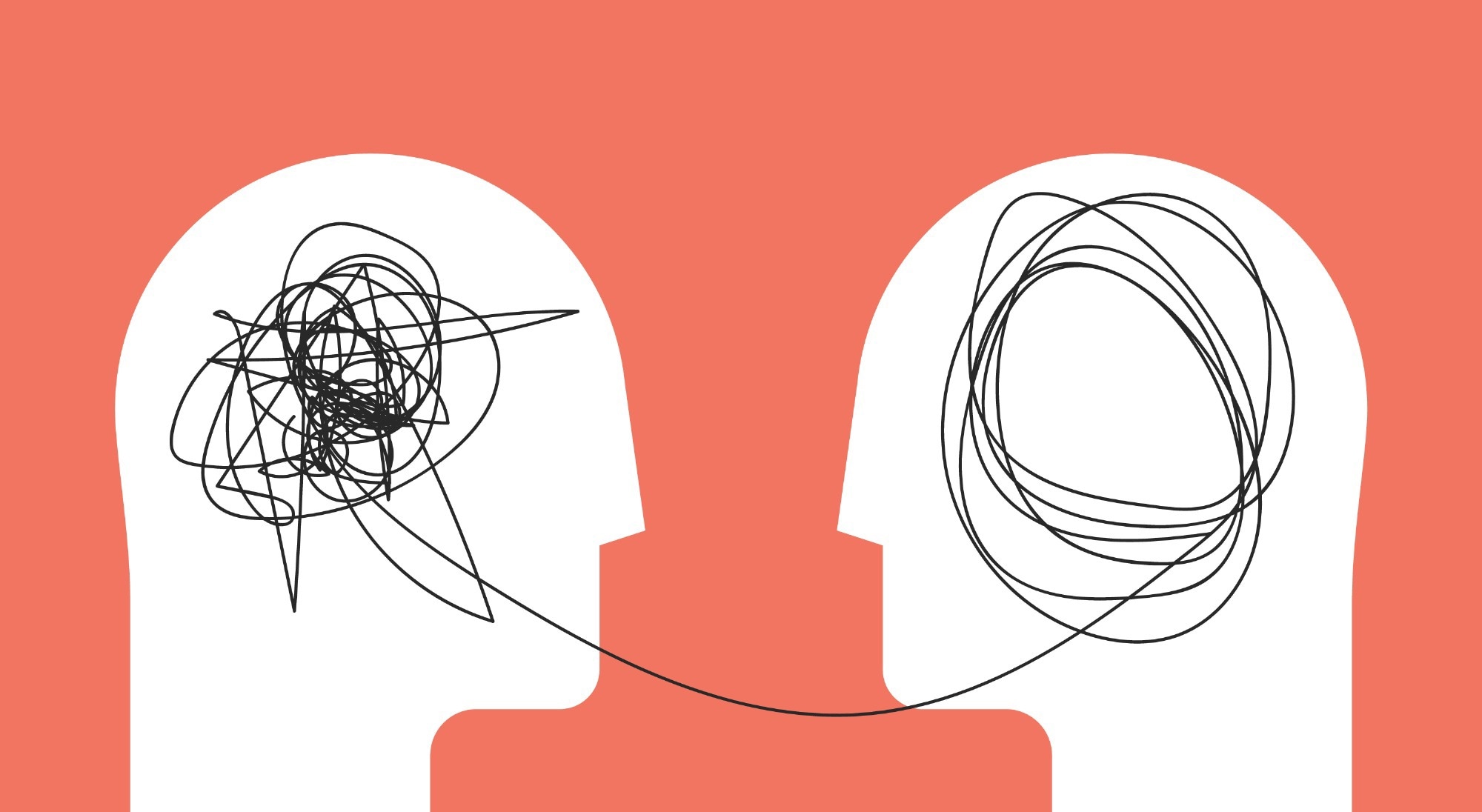Introduction
Problems of categorization
The stigma of mental illness
The treatment gap in low to middle-income countries
Problems in affluent regions
References
Further reading
 Diagnosis?" />As part of our coverage for World Mental Health Day 2022, News Medical explores the current challenges in mental health disorder diagnoses.
Diagnosis?" />As part of our coverage for World Mental Health Day 2022, News Medical explores the current challenges in mental health disorder diagnoses.
Mental health disorders and substance use disorders are the leading cause of disability worldwide. Around the globe, there are 450 million people with a mental disorder, and 25% of the population will suffer from a mental illness during their lifetime (Carbonell et al., 2020; WHO, 2017). Meanwhile, more than 26 million people worldwide are diagnosed with severe mental illness.
There are presently several challenges for diagnosing mental health disorders, from the common to the more severe. These involve problems that range from the way mental health disorders are categorized to the way they are perceived, and this is assuming they are even diagnosed at all: there are problems with access to services that are inefficient and in need of change.
Problems of categorization
Although there has been an unprecedented expansion in our knowledge about mental health conditions during the past half century, our understanding is still in its infancy. There are currently three systems or approaches when diagnosing and assessing mental health conditions. These are:
- the International Classification of Diseases
- the Diagnostic and Statistical Manual of Mental Disorders
- National Institute of Mental Health's Research Domain Criteria
The first two are diagnostic manuals that present classification systems applicable to public health, clinical diagnosis, service provision, and specific research applications. The second manual is relevant to the US. Meanwhile, the third listed approach refers to a framework emphasizing the integration of basic behavioral and neuroscience research with a view to a better understanding of mental disorders.
According to Clark et al. (2017), four key problems currently prevent adequate understanding and classification of mental health disorders. These are:
- Etiology –including the multiple causalities of mental disorder
- Discrete –whether the relevant phenomena are discrete categories or dimensions
- Threshold –which sets the boundaries between disorder and nondisorder
- Comorbidity –individuals with mental illness often meet diagnostic criteria for multiple conditions
 Image Credit: Dragana Gordic/Shutterstock
Image Credit: Dragana Gordic/Shutterstock
The stigma of mental illness
Inadequate knowledge and understanding of mental illness are now well known to be prohibitive to effective treatment. Those with mental health conditions have in pastimes been stigmatized and have faced discrimination. The problem is not an unknown one in the present day either.
The stigmatization of mental illness has been recognized as one of the major barriers to addressing the aforementioned mental health gap. The problem is a serious one that leads to delays in seeking treatment and possible social exclusion and isolation for those afflicted. The negative perception surrounding mental illness readily reaches beyond the patient. It is also found among prospective health care professionals who may be swayed against choosing this specialism, thus exacerbating problems of personnel shortages in this sector.
WHO’s Science in 5: Mental Health - 1 July 2022
The treatment gap in low to middle-income countries
There is a known phenomenon known as the “mental health treatment gap.” Across the globe, more than 70% of people presently lack access to mental health care services (Wainberg, et al., 2017). The problem is particularly acute in low-to-middle-income countries, and a proportion of these still have no dedicated budget for mental health care.
To address the “treatment gap,” the World Health Organisation (WHO) devised the Mental Health Gap Action Programme Intervention Guidelines. Though they were intended to be user-friendly, several issues have prevented their successful optimization thus far, such as low numbers of workers in mental health, low levels of research, the stigma of mental health, and the segregation of mental health services.
Problems in affluent regions
The problems are not confined to poorer countries either. Research has demonstrated that mental health services in more affluent countries are often inefficient. In the UK, for example, it has been typical to treat mental health conditions in centralized psychiatric services or clinics rather than in the primary care setting. This means those in urbanized areas are at a distinct advantage when it comes to access to services compared to those who live further out in more rural areas and across the community more generally.
To address the problems, in 2013, the World Health Assembly adopted the Comprehensive Mental Health Action Plan for 2013–2020. This asked United Nations (UN) member states to integrate mental health care into the primary care setting. Its intended reach was to incorporate both common and severe mental disorders.
At present, we know that people with mental health disorders have a reduced life expectancy of around 10-15 years. Early intervention from the age of the first onset can drastically improve upon this grim prediction. But presently, mental health care systems typically separate adult and child services.
More needs to be done. The calls for more integrated health systems that reach those in the wider community and incorporate models of mental health that move us away from the biomedical model present an opportunity to foster an improved service for all.
 Image Credit: Paul Craft/Shutterstock
Image Credit: Paul Craft/Shutterstock
References
- Carbonell, A., et al. 2020. Challenges and barriers in mental healthcare systems and their impact on the family: A systematic integrative review. Health and Social Care. Doi: 10.1111/hsc.12968
- Clarke, L. et al. 2017. Three Approaches to Understanding and Classifying Mental Disorder: ICD-11, DSM-5, and the National Institute of Mental Health's Research Domain Criteria (RDoC). Psychol Sci Public Interest. Doi: 10.1177/1529100617727266
- Saxena, S. et al. 2013. World health assembly adopts comprehensive mental health action plan 2013–2020. Lancet. Doi: 10.1016/S0140-6736(13)61139-3
- Solmi, M. et al. 2022. Age at onset of mental disorders worldwide: large-scale meta-analysis of 192 epidemiological studies. Molecular Psychiatry. Doi: 10.1038/s41380-021-01161-7
- Wainberg, M. 2017. Challenges and Opportunities in Global Mental Health: a Research-to-Practice Perspective. Curr Psychiatry Rep. Doi: 10.1007/s11920-017-0780-z
- World Health Organization. 2007. Everybody’s business–strengthening health systems to improve health outcomes: WHO's framework for action. Online: https://apps.who.int/iris/bitstream/handle/10665/43918/9789241596077_eng.pdf
Further Reading